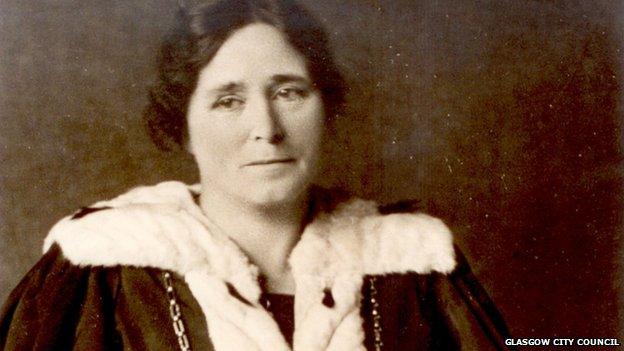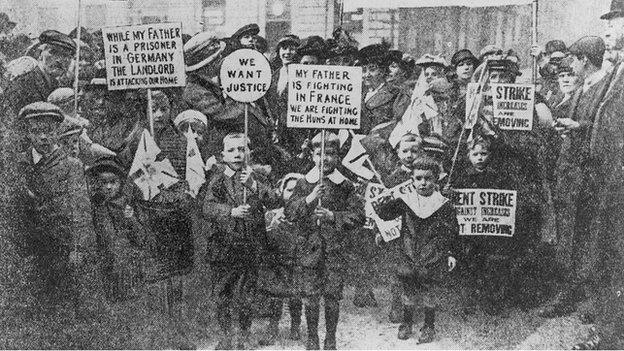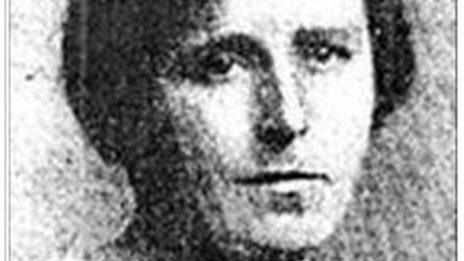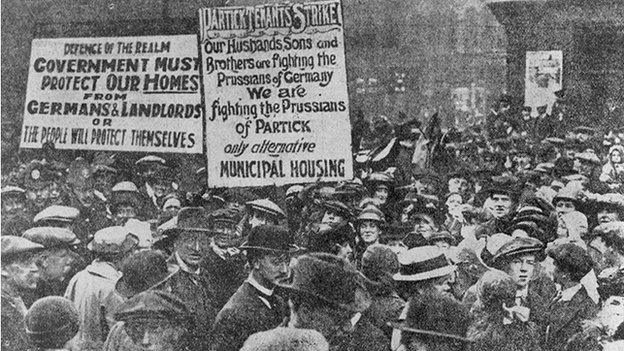Fund to erect statue of social reformer Mary Barbour to be launched
- Published

Mary Barbour was elected as one Glasgow's first female councillors in 1920
A fund is being launched to erect a statue of a Govan woman widely regarded as one of the most important social reformers of the last century.
Mary Barbour led the Glasgow rent strikes of 1915, forcing a change in the law with the introduction of the Rent Restrictions Act.
She later became one of the city's first female councillors, and the first baillie and magistrate.
Sir Alex Ferguson has already pledged £5,000 towards the memorial campaign.
The project follows a motion by Councillor Pauline McKeever in May 2013 urging the local authority to support the Remember Mary Barbour committee's campaign for a statue in her memory.
"Revolutionary"
Lord Provost Sadie Docherty will be formally announcing the fund on Friday evening.
She said: "Mary Barbour is a remarkable woman whose cause is very close to my heart because she revolutionised housing and vastly improved social conditions for so many people.
"She remains a real inspiration to me. Her values and her determination to make a difference still resonate today.
"It would be such a pity if her contribution to women and children and a fairer society was allowed to fade.
"It's high time she received permanent recognition and it's wonderful that the Remember Mary Barbour campaign, to erect a statue in her memory, will finally allow a lasting tribute to her vision, courage and convictions."

It was the Glasgow rent strike during the first world war that brought Mary Barbour to prominence
The strikes took place at the height of World War One, with 20,000 people taking to the streets in protest against profiteering landlords.
The mobilisation of Barbour's Army saw thousands of women march alongside shipyard and engineering workers to protest at the prosecution of 18 tenants for non-payment of a rent increase in Glasgow's small debt court.
The campaign attracted ministerial intervention, the cases were dismissed and the Rent Restriction Act was enacted, heralding a change in Glasgow's housing system.
Relentless campaigner
Post-war, Ms Barbour maintained her vision and determination to deliver better policies for women and children across the city.
In 1920 she was elected as the city's Labour town councillor for the Fairfield ward in Govan with huge support from the women she fought for.
Until her retirement in 1931 she worked relentlessly for the working class of her constituency, serving on numerous committees concerned with health and welfare services - leading campaigns for free school milk, children's play parks, municipal wash houses and the city's first family planning clinic.
Even after she withdrew from politics, Ms Barbour remained active in the Co-operative Committees, and in her later years organised trips to the seaside for children of the poor.
She died in 1958 at the age of 83.
- Published9 March 2012

- Published25 February 2014
